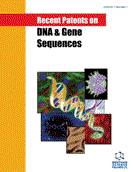Abstract
The search for a classic biomarker for prostate cancer has been on for a very long time, and it is still elusive. Despite the extensive and prolonged use of the prostate-specific antigen (PSA) as a screening tool for prostate cancer, many clinicians still identify its limitations in the grading of tumors, and monitoring of response to treatment. These limitations are based on the concealment of cancer by low levels of PSA, and over diagnosis and over treatment that are resultant of excessively high levels of antigens. To overcome these limitations, a plethora of candidate biomarkers have been investigated and identified. Regrettably, none of these putative biomarkers has shown ideal utility for prostate cancer detection and prognostication. In spite of these, various patents have been filed and granted for several of these biomarkers. The discovery of an exclusive marker for prostate cancer may be mired by the heterogeneity of the disease, since the molecular mediators of the disease are linked with its etiopathogenesis. Thus the search for biomarkers of prostate cancer must recognize its etiology and downstream mediators. In this review, PCGEM1, a patented prostatespecific non-coding RNA gene with an upregulated transcription in African American malignancy will be discussed in relationship to the etiology of prostate cancer.
Keywords: PCGEM1, non-coding RNA, oncogene, prostate cancer, cholesterol, phytosterol, sterols, PTEN, biomarkers, patents
 14
14

